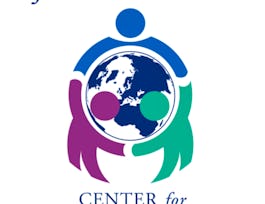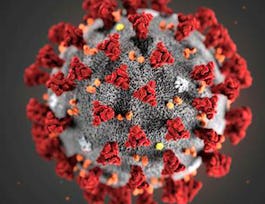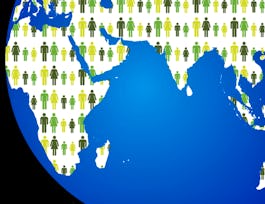This course, Public Health in Humanitarian Crises 2, addresses public health issues of people affected by disasters, both natural or conflict-related. It discusses the many changes that occur in people’s lives when they are uprooted by a disaster, including many important topics related to humanitarian crises, such as when there is an epidemic a public health emergency; what do we mean with the humanitarian development nexus; what are the basics of disaster epidemiology and surveillance; humanitarian principles; and other very relevant topics. We will explore what humanitarian interventions could look like if we want to mitigate the effects of disasters.


Public Health in Humanitarian Crises 2
Taught in English
Some content may not be translated
8,209 already enrolled
(102 reviews)
Skills you'll gain
Details to know

Add to your LinkedIn profile
10 quizzes
See how employees at top companies are mastering in-demand skills


Earn a career certificate
Add this credential to your LinkedIn profile, resume, or CV
Share it on social media and in your performance review

There are 11 modules in this course
This module describes features and strategies to detect disease outbreaks and the key aspects of an effective outbreak response.
What's included
6 videos1 quiz
Maternal and newborn health care is an essential component of humanitarian health response. This module explains why and lists the key interventions at different phases of an emergency.
What's included
4 videos1 quiz1 discussion prompt
This module explains the importance and use of surveys and surveillance in humanitarian crises and uses many practical examples to illustrate the concepts.
What's included
6 videos1 quiz
This module describes the core humanitarian principles, their origin and explains how ethics can guide humanitarian decision-making.
What's included
6 videos1 quiz1 discussion prompt
Disease outbreaks and other public health emergencies continue to increase in frequency and severity. This module describes the basic concepts of the International Health Regulations and the Global Health Security Agenda. It provides understanding when an emergency is a so-called Public Health Emergency of International Concern.
What's included
4 videos1 quiz
In this module, the humanitarian-development nexus is explained together with the challenges of providing emergency assistance while taking into account the longer-term development needs of the host population and government.
What's included
5 videos1 quiz1 discussion prompt1 plugin
This module illustrates why infant feeding matters in a disaster setting, what to do and how to identify the warning signs for potential problems on infant feeding in a disaster.
What's included
10 videos1 quiz
Planning is necessary for humanitarian emergencies. This module illustrates in practical terms the planning cycle and how this is used in humanitarian emergencies.
What's included
5 videos1 quiz1 discussion prompt
In each crisis affected populations still have sexual and reproductive health needs. This module describes the essential sexual and reproductive health services at different phases of an emergency.
What's included
6 videos1 quiz
Psychosocial and mental health problems are commonly experienced by disaster-affected populations. This module identifies strategies for the identification of psychosocial and mental health problems in displaced populations and provides information on what can be done in the field.
What's included
4 videos1 quiz1 discussion prompt
In this module, you'll plan a response to a real humanitarian public health crisis.
What's included
1 peer review
Instructors


Offered by
Recommended if you're interested in Public Health

Johns Hopkins University

Imperial College London

Imperial College London

Johns Hopkins University
Why people choose Coursera for their career




Learner reviews
Showing 3 of 102
102 reviews
- 5 stars
84.31%
- 4 stars
13.72%
- 3 stars
0%
- 2 stars
0%
- 1 star
1.96%
New to Public Health? Start here.

Open new doors with Coursera Plus
Unlimited access to 7,000+ world-class courses, hands-on projects, and job-ready certificate programs - all included in your subscription
Advance your career with an online degree
Earn a degree from world-class universities - 100% online
Join over 3,400 global companies that choose Coursera for Business
Upskill your employees to excel in the digital economy
Frequently asked questions
Access to lectures and assignments depends on your type of enrollment. If you take a course in audit mode, you will be able to see most course materials for free. To access graded assignments and to earn a Certificate, you will need to purchase the Certificate experience, during or after your audit. If you don't see the audit option:
The course may not offer an audit option. You can try a Free Trial instead, or apply for Financial Aid.
The course may offer 'Full Course, No Certificate' instead. This option lets you see all course materials, submit required assessments, and get a final grade. This also means that you will not be able to purchase a Certificate experience.
When you purchase a Certificate you get access to all course materials, including graded assignments. Upon completing the course, your electronic Certificate will be added to your Accomplishments page - from there, you can print your Certificate or add it to your LinkedIn profile. If you only want to read and view the course content, you can audit the course for free.
You will be eligible for a full refund until two weeks after your payment date, or (for courses that have just launched) until two weeks after the first session of the course begins, whichever is later. You cannot receive a refund once you’ve earned a Course Certificate, even if you complete the course within the two-week refund period. See our full refund policy.


